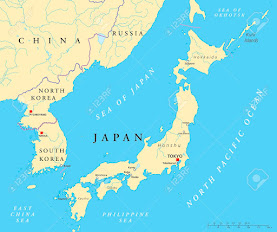Japan's economic journey has seen remarkable transformations throughout history. From its early agricultural roots to becoming a global economic powerhouse, the country's economy has evolved continuously, reflecting its adaptability and resilience.
Ancient Japan: Agrarian Beginnings
In ancient
times, Japan's economy centered on farming. People cultivated rice and other
crops, and the exchange of goods primarily involved bartering. Agriculture
sustained the population and provided the foundation for Japan's economic
development.
Feudal Japan: Rise of the Samurai Economy
During the
feudal era, the economy was largely agrarian, with samurai as the ruling class.
They collected taxes from peasants and protected their lands. This system
brought stability but limited economic growth.
Edo Period: Merchant Prosperity
In the Edo
period, the merchant class gained prominence. Urbanization led to the growth of
markets and trade. Merchants played a pivotal role in stimulating economic
activity, leading to the emergence of a money-based economy.
Meiji Era: Industrialization and Modernization
The late
19th century marked the Meiji Restoration, a period of rapid change. Japan
embraced industrialization, developing industries like textiles, steel, and
shipbuilding. Modern infrastructure, transportation, and communication systems
were established, setting the stage for economic growth.
Post-WWII: Economic Miracle
Following
World War II, Japan experienced an economic miracle. The focus shifted to
manufacturing and export-oriented industries. Companies like Toyota and Sony
became global giants. The government played a key role in planning and
supporting this economic resurgence.
Contemporary Japan: Technological Advancements and Globalization
Today,
Japan is known for its cutting-edge technology and innovation. Industries like
electronics, robotics, and automotive manufacturing have thrived. The country
has a strong global presence and continues to adapt to the changing global
economy.
Challenges
and Adaptations
Japan faces
economic challenges, such as an aging population and deflationary pressures. To
address these issues, the government is implementing policies to encourage
workforce participation, innovation, and international collaboration.








0 Comentarios